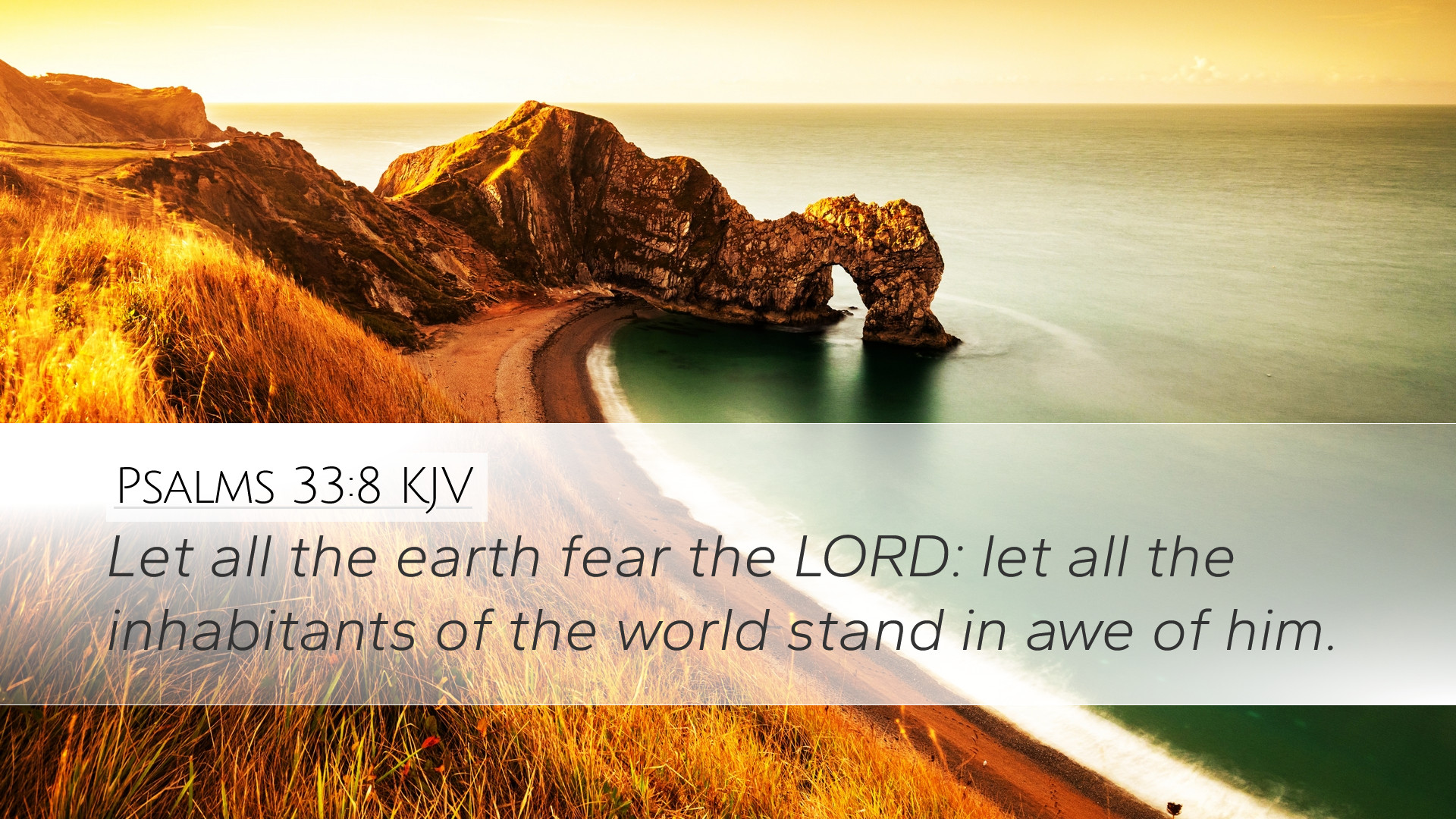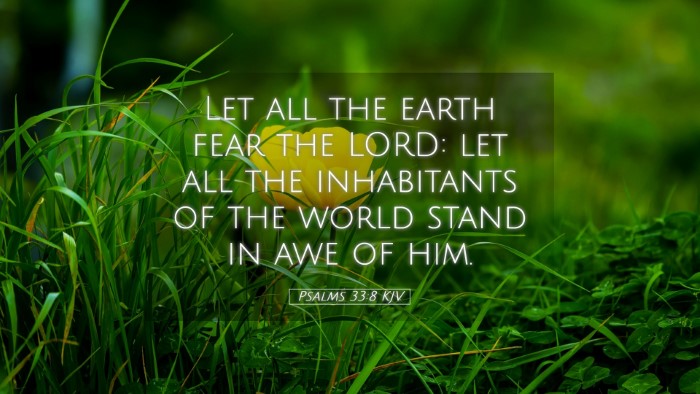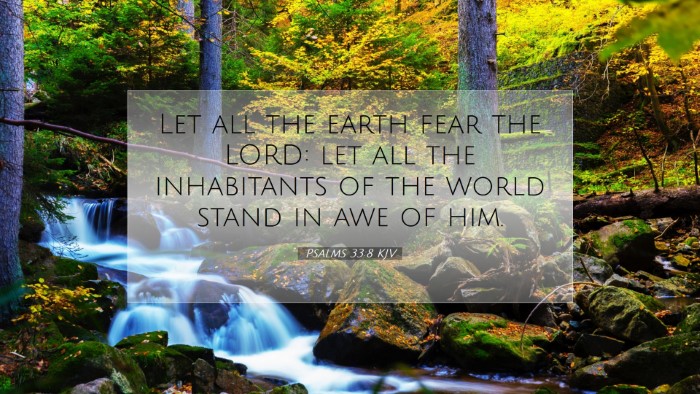Commentary on Psalms 33:8
Psalms 33:8 states: "Let all the earth fear the LORD: let all the inhabitants of the world stand in awe of him." This verse calls forth a profound reverence and recognition of God's sovereignty and majesty, presenting a pivotal theme in biblical theology.
Introduction
The Book of Psalms is a rich collection of songs and prayers that reflect the entirety of the human experience in relation to the Divine. Psalm 33 is a celebratory hymn that praises God's sovereignty in creation and His providential governance over the universe. The specific exhortation in verse 8 encapsulates the appropriate human response to God's power and authority.
The Call to Fear the Lord
The psalmist begins with an imperative: "Let all the earth fear the LORD." This fear is not one of terror but a recognition of God’s holiness and power. Matthew Henry elaborates on this point, suggesting that true fear of the Lord is intertwined with reverence and love, leading to obedience.
Albert Barnes emphasizes that this fear should be universal, extending beyond the nation of Israel to all nations and peoples. It is an acknowledgment of God's supreme authority and role as the Creator, which demands reverence from every part of creation. This is echoed in Romans 1:20, where Paul states that God’s invisible attributes are clearly seen, and thus, humanity is without excuse.
The Nature of Awe
The continuation of the verse, "let all the inhabitants of the world stand in awe of him,” invites a deeper exploration into the nature of awe before God. Adam Clarke notes that standing in awe is a posture of humility and submission to God's will. This awe is rooted in an understanding of God's greatness, leading to a desire for a relationship with Him.
Awe transforms our vision, compelling us to contemplate the vastness of God's creation, as well as His intricate involvement in the affairs of humanity. This is vital for believers and serves as a reminder of both the majesty of God and the gravity of His expectations for how we live our lives.
Theological Implications
-
The Sovereignty of God: The fear of the Lord highlighted in this verse is a declaration of God’s ultimate authority. He is not merely a distant creator but actively governs all aspects of life. Matthew Henry insists this realization should correct our misperceptions of autonomy, convincingly illustrating that our lives are under His lordship.
-
The Universal Call to Worship: This verse is also a call to worship that transcends cultural and geographical boundaries. Albert Barnes argues that the imperatives presented in this psalm are applicable to all humanity, pointing to the coherent biblical truth of God's desire for all nations to worship Him (Psalm 86:9).
-
The Response of Humanity: The appropriate response to God's revealed truth is awe and fear. This acknowledgment of God’s nature challenges believers to cultivate a lifestyle reflective of such reverence. Adam Clarke emphasizes that this fear leads to wisdom, a transforming characteristic of those truly aware of God’s presence.
Practical Applications
-
Self-Examination: In light of this verse, Christians should engage in self-examination to determine whether their lives emanate a fear of God. Are their actions and choices reflective of awe in the presence of God's holiness?
-
Encouragement of Worship: Pastors and leaders are encouraged to create spaces and opportunities for collective worship that invoke this awe—both in church assemblies and in personal devotion.
-
Witness to Others: As the global community grapples with various ideologies, believers are called to demonstrate the fear of the Lord as a compelling testimony to those outside of faith. This verse provides a strong evangelistic appeal to communicate God’s majesty to others.
Conclusion
Psalms 33:8 serves as a powerful reminder of the proper orientation of humanity toward God—our Creator and Sustainer. The verse calls us to acknowledge His sovereignty and to respond with heartfelt reverence and awe. Drawing insights from public domain commentaries, we find an enriched understanding of both the theological depths and practical implications of fearing the Lord in our lives. May this verse instill in believers a renewed commitment to live in light of God's glory, drawing others toward His grace.


